#rko comedy
Explore tagged Tumblr posts
Text


"I suppose you think I've changed, too." "Not anymore than could be expected. I suppose every man when he grows old begins to lose prideness on personal appearance."
-Edgar Kennedy & Vivien Oakland in Beaux and Errors (1938)
#beaux and errors 1938#edgar kennedy#vivien oakland#rko short film#rko short comedy#rko comedy#favorite
0 notes
Photo
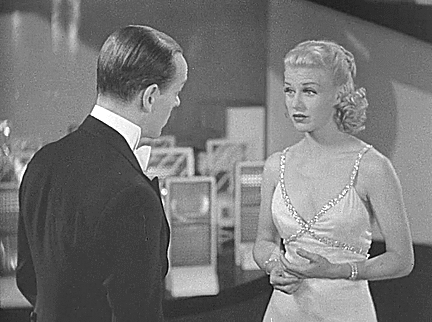

Ginger Rogers in Swing Time (1936) dir. George Stevens
#ginger rogers#1936#1930s#30s#screwball comedy#romance#comedy#fred x ginger#fred astaire x ginger rogers#george stevens#rko#swing time#classic movies#oldhollywoodedit
79 notes
·
View notes
Text
On November 14, 1940, You'll Find Out premiered in New York City.

Here's a new portrait of Bela Lugosi!
#you'll find out#you'll find out 1940#david butler#fred fleck#bela lugosi#new york city#movie premiere#horror comedy#horror art#1940s#rko pictures#black and white film#fan art#horror#comedy movies#parody film#midnight movies#black and white art#pen drawing#art#movie art#drawing#movie history#pop art#modern art#pop surrealism#cult movies#portrait
3 notes
·
View notes
Text

3 notes
·
View notes
Text
#laurel and hardy#laurel & hardy#stan laurel#oliver hardy#movie stars#old hollywood#vintage movies#comedy film#slapstick comedy#old movies#old films#classic cinema#classic film#black and white movies#hal roach#rko#way out west#sons of the desert#blockheads#babes in toyland#pardon us
1 note
·
View note
Photo
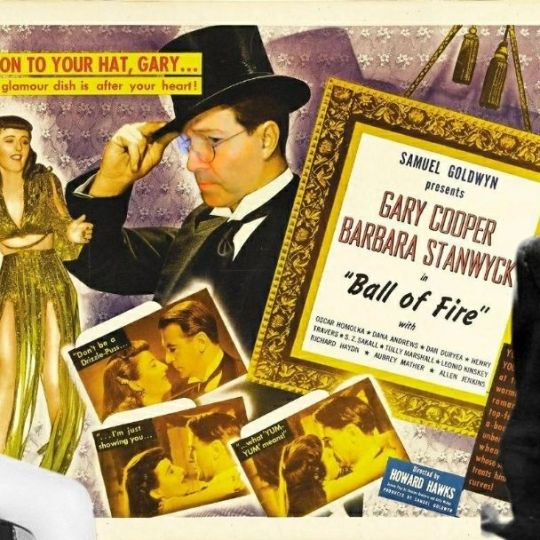
BOLA DE FUEGO (HOWARD HAWKS, 1941) es una genialidad, una obra maestra de la SCREWBALL COMEDY en la que encontramos a un GARY COOPER en un inusual papel de erudito que trabaja, junto con siete colegas más, en la elaboración de una ENCICLOPEDIA. Al darse cuenta de que su aislamiento y su dedicación extrema les han privado de conocer mejor el lenguaje de la calle, el profesor BERTRAM POTTS decide investigar in situ las expresiones y la forma de hablar populares, encontrando en su camino a SUGARPUSS O´SHEA (BARBARA STANWICK, nominada al OSCAR por esta fabulosa interpretación), cantante de un club nocturno que consigue llamar la atención del buen profesor por sus variopintas explosiones lingüísticas y su irresistible atractivo. Pero ella es además la novia del peligroso gangster JOE LILAC (DANA ANDREWS), y este no está dispuesto a perder a la mujer que puede librarle de la cárcel. ¿Ganará el conocimiento? ¿Ganará el amor? ¿Ganará el mafioso? Descubre esta divertidísima película escrita por el inigualable BILLY WILDER. ^^^Link de YouTube en la bio^^^ #comedy #rko #barbara #balloffire #boladefuego #garycooper #barbarastanwick #billywilder #howardhawks #classic #cinematic #oscars #enciclopedia #teacher #newyork #newjersey #screwballcomedy #jerryleelewis #greatballsoffire #jerrylewis #enciclopedia #wisdom #professor #doctor #drumboogie #oscars #1941 #femmefatale #gangster #goldenageofhollywood https://www.instagram.com/p/CpVzSUSMEHu/?igshid=NGJjMDIxMWI=
#comedy#rko#barbara#balloffire#boladefuego#garycooper#barbarastanwick#billywilder#howardhawks#classic#cinematic#oscars#enciclopedia#teacher#newyork#newjersey#screwballcomedy#jerryleelewis#greatballsoffire#jerrylewis#wisdom#professor#doctor#drumboogie#1941#femmefatale#gangster#goldenageofhollywood
1 note
·
View note
Text
Favorite films discovered in 2024
This year, I focused more on rewatching films I hadn't seen in a long time rather than racking up new titles. However, I still encountered plenty of new faves, many of them movies that have been on my watchlist for years. Here are the top twenty.
But first, some interesting patterns in this year's list...
Most represented decade: 1960s
Earliest film represented: 1932
Newest film represented: 1999
Creatives who show up more than once: Robert Mulligan, Walter Matthau, Boris Karloff
The Window (dir. Ted Tetzlaff, 1949)
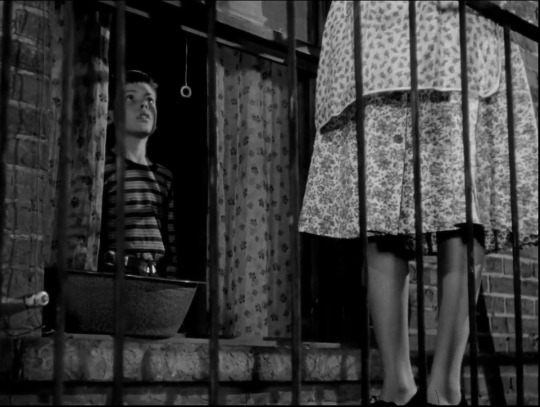
A young boy (Bobby Driscoll) living in a squalid NYC apartment building witnesses his neighbors (Paul Stewart and Ruth Roman) committing a murder. Unfortunately, the kid's penchant for tall tales prevent anyone from believing him-- except for the killers, eager to alleviate themselves of an inconvenient witness.
Precious few thrillers earn the moniker “Hitchcockian” as well as this intense little gem from RKO. The Hitchcock vibes make sense when you consider Hitchcock’s cinematographer from Notorious was in the director’s chair and the source material was written by Cornell Woolrich, also responsible for the short story behind Rear Window. Augmented by on-location photography of New York City and a grimy, desolate sense of urban decay, The Window is both a great suspense yarn and classic film noir. Despite having a kid for a lead character, the film pulls no punches: both its small-time crook villains and the city setting feel palpably dangerous.
My Neighbors the Yamadas (dir. Isao Takahata, 1999)
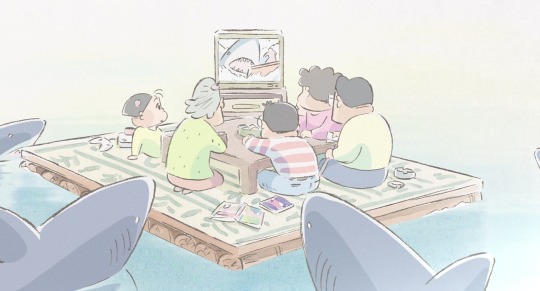
The Yamadas, an average middle-class Japanese family, navigate the perils of sharing a television set, a kid going missing during a shopping trip, awkward wedding speeches, and other misadventures.
Between the original Studio Ghibli directorial duo of Hayao Miyazaki and Isao Takahata, Miyazaki will always be the more popular filmmaker, but I think Takahata’s films are more intellectually and emotionally rewarding. This is not meant as a hit on Miyazaki’s undeniable greatness, but Takahata’s movies are far more challenging. That being said, My Neighbors the Yamadas is a lighter entry in his filmography, a slice of life comedy about the eponymous family and their shenanigans in modern Japan. However, beneath the whimsical humor runs an undercurrent of melancholy, an awareness of the transience of life in both its lovely and absurd moments. To date, it gets my vote for the most underrated Ghibli film.
A New Leaf (dir. Elaine May, 1971)
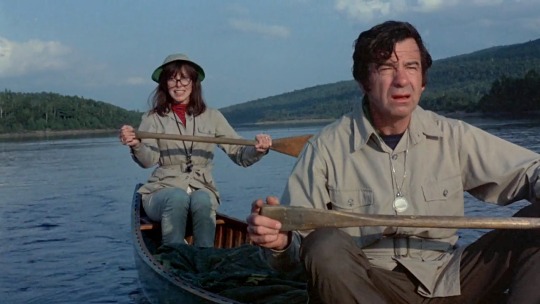
After squandering his ample inheritance, a middle-aged New York layabout (Walter Matthau) decides to marry an eccentric botanist (Elaine May) for her money then murder her ASAP.
Elaine May only directed a few films, but the two I’ve seen—this and the long-maligned Ishtar—were a lot of fun. A New Leaf is the better film though, far more focused and consistently funny. I don't usually belly laugh when watching a movie at home alone, but I did several times here. Even just thinking about some of the things that happen in this film can make me start laughing again. I understand the existing version was not May’s preferred cut and she felt it was butchered by the studio. Even so, this is a great movie regardless of that and one I really want to rewatch soon.
Cash on Demand (dir. Quentin Lawrence, 1961)
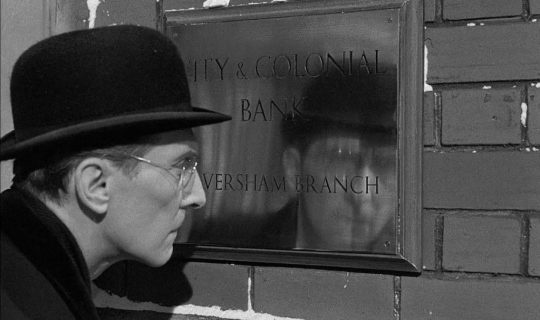
Uptight, unpleasant bank manager Harry Fordyce (Peter Cushing) is the boss from hell to his employees, but to criminal extraordinaire Gore Hepburn (Andre Morrel), he's the key to a successful heist. Posing as an insurance representative to get access to Fordyce's office, Hepburn tells the manager he's holding his wife and child, whose lives will be forfeit if he doesn't help him relieve the bank of ninety thousand pounds.
Ho, ho, ho, guess who's got a new Christmas classic to enjoy every year? Cash on Demand is not only a strangely enervating riff on A Christmas Carol's basic set-up (a miserable man is spiritually redeemed through an encounter with ghosts-- or in this case, bank robbers), but it's one of the best, tightest one-location thrillers I have ever seen. I genuinely had no idea where the story was going and found myself in absolute agony as the noose grew tighter around our protagonist's neck. It's a testament to both the writing and Peter Cushing's detailed, very human performance that this film is the emotionally powerful piece of work that it is, and not just a fun, clockwork heist yarn.
Letter from an Unknown Woman (dir. Max Ophuls, 1948)
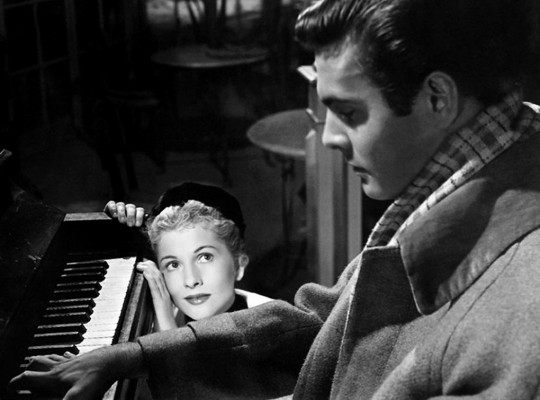
While trying to evade a duel, an aging playboy (Louis Jordan) receives a letter from a dying woman (Joan Fontaine) who claims he was the love of her life. The letter recounts the details of their love affair, which was the centerpiece of this woman's life and only a mere erotic interlude in his.
The best way to describe this movie is lush romantic melodrama married to a bitter, emotionally brutal tale of a life wasted. The movie is heartbreaking but beautifully shot and performed. I’m not always the biggest fan of Fontaine, but she is fantastic here. Also, I need to watch more Max Ophuls.
Sudden Fear (dir. David Miller, 1952)
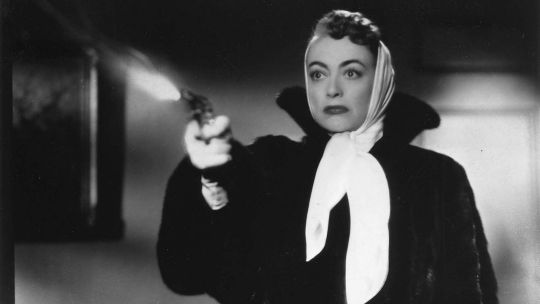
A middle-aged playwright (Joan Crawford) thinks she’s found love with a would-be matinee idol (Jack Palance)—instead she realizes she’s being targeted by her new hubby, who only wants her wealth. But he mistakes her emotional vulnerability for a lack of discernment—and a lack of desire to get even.
I like my women-in-peril thrillers when they feature clever heroines driven to survive whatever nightmare their antagonists throw at them and Sudden Fear is amazing in this regard. I know everyone loves Joan Crawford best in Mildred Pierce, but I was floored by her performance here, especially in the dialogue-free scenes. There are campy moments (which I adore), but the story is emotionally compelling and I not only wanted Joan's character to survive, but to thrive post-shitty marriage.
Thieves Like Us (dir. Robert Altman, 1974)
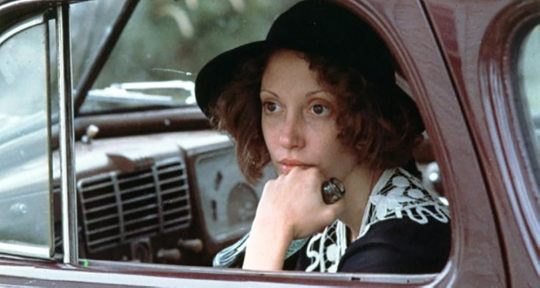
Young lovers Bowie (Keith Carradine) and Keechie (Shelley Duvall) yearn for a white picket fence, a quiet porch, and a case of Cokes (probably because that's all they drink in this film). Too bad Bowie is an escaped convict tied up with bank robbers. Too bad it's the Great Depression. At least there's plenty Coke. Want a Coke?
Most films set in the past do not as painstakingly recreate bygone worlds as strongly as Thieves Like Us. Set in Depression era Mississippi, this film captures the harsh, bleak reality and romantic, consumerist fantasies of its star-cross’d leads, played with sensuous naivete by Keith Carradine and the late, great Shelley Duvall. This is more than just yet another Bonnie and Clyde riff—it’s a tragedy about the elusive American Dream, with snippets of radio music, programs, and ads acting as a Greek chorus in a truly inspired touch. Robert Altman can be an acquired taste, but this is easily my favorite of his films to date.
Targets (dir. Peter Bogdanovich, 1968)
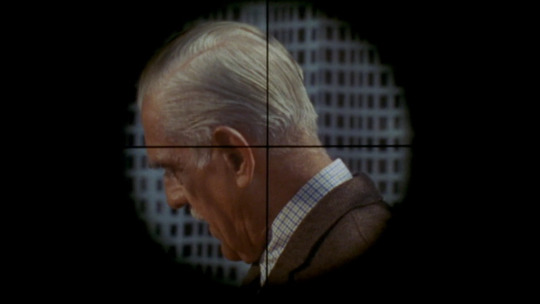
The paths of an aging horror star (Boris Karloff) and a psychotic mass shooter (Tim O'Kelly) cross at a drive-in theater.
Targets was not what I expected: it's a threeway character study between the disheartened horror star, the psychotic shooter, and 1960s America itself. To be honest, you could remake this movie now with a former ‘80s slasher star making the same musings and it would still seem credible—but then of course, you wouldn’t have Karloff in one of the best performances of his career. Targets is rendered even more chilling by its docudrama style. The violence shown isn’t sensationalistic, but presented in clinical detail, making it feel more authentic. Gorier films haven’t frightened me as much as this slow-burn character study.
Losing Ground (dir. Kathleen Collins, 1982)
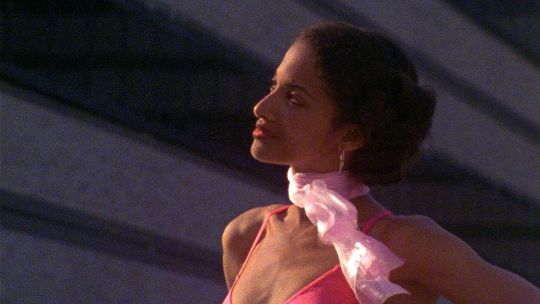
Despite finding pleasure in research and theory, philosophy professor Sara Rogers (Seret Scott) envies the escatic nature of her painter husband, Victor (Bill Gunn). Their difference in temperaments and Victor's adulterous straying also strain the marriage. However, once Sara takes a job performing a sensuous, emotional role in a student film to get in touch with her own artistic side, Victor grows suspicious and jealous in turn.
Losing Ground was sold to me as a film about a crumbling marriage, but it's more than that. It might be more accurate to call it a portrait of self-discovery, a woman extending beyond her comfort zone to live more fully. I found myself strongly relating to Sara-- like her, I have a creative side I've often been timid to share, being more comfortable with the mind than the body. Being an independent film, it eschews the Hollywood histrionics and melodrama that would normally accompany this subject matter and it's paced perfectly at 90 minutes. Though filmed in the early '80s, the film only played the film festival circuit and never enjoyed a proper theatrical release. Only in 2015 was it rediscovered and then released on home video. The director Kathleen Collins died young, but this film stands a testament to her passion and talent.
Cactus Flower (dir. Gene Saks, 1969)
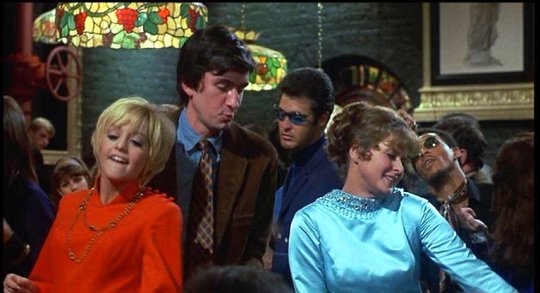
A middle-aged dentist (Walter Matthau) who poses as a married man to fend off romantic commitment decides to buckle down and wed his much younger girlfriend (Goldie Hawn, looking like a mod Tinker Bell). However, when she insists on speaking with his made-up wife, he recruits his no-nonsense nurse (Ingrid Bergman) into the charade.
Cactus Flower is what I often call a transitional film: released in the late ‘60s, it has one foot in the classical style of Old Hollywood and another in the more liberated counterculture that was shooting out hits like Easy Rider and The Graduate. Directed with unexciting competence by Gene Saks, Cactus Flower’s success largely comes from Ingrid Bergman, Goldie Hawn, and Jack Weston. Bergman I could watch in anything, so I’m biased perhaps, but she walks the fine line between funny and touching as the lonely woman who finds emotional liberation through her roleplaying. The scene where she gets groovy on the dance floor is a highlight of her entire screen career and no, I AM NOT KIDDING.
The Black Room (dir. Roy William Neill, 1935)
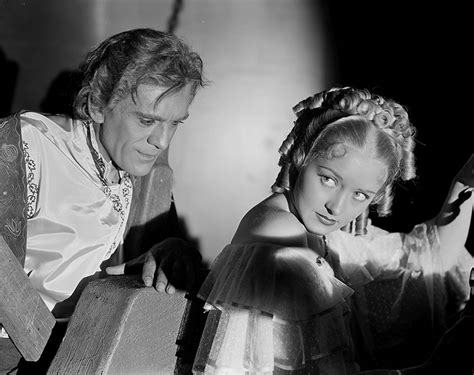
Two aristocratic brothers (both Boris Karloff) are at odds over the love of a young woman (Marian Marsh) and an ancient prophecy forecasting the end of their bloodline.
Boris Karloff dives into a double role in this deliciously gothic melodrama. Columbia pulled out all the stops for this one: it drips with sumptuous set design and expressionistic lighting. I was particularly taken by this film’s slightly tongue-in-cheek approach to a more 18th century mode of gothic terror. It goes for full-blooded melodrama with its innocent maidens, secret dungeons, lecherous villain, and ancient curses. It’s as close to a 1930s Castle of Otranto adaptation as we’ve got and by God, I'm grateful for its existence.
Freud: The Secret Passion (dir. John Huston, 1962)
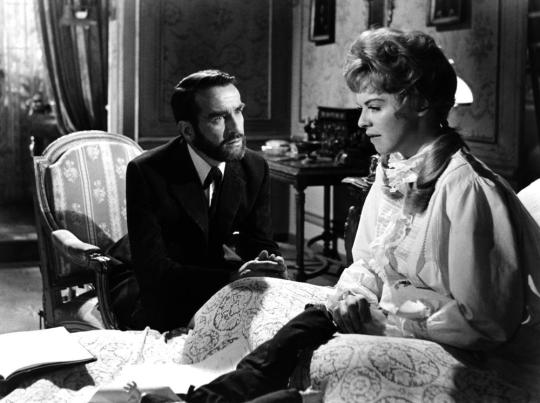
In the late 1880s, young psychiatrist Sigmund Freud (Montgomery Clift) probes into the inner lives of his "hysterical" patients to discover the roots of their mental illnesses. However, these journeys into the subconscious worlds of others bring him into uncomfortable contact with his own demons.
Listening to a podcast episode on John Houston’s Key Largo led me to works of his I hadn’t heard of, such as Freud. I was initially skeptical it could be good. Biopics are my least favorite genre, but this film isn’t so much a biopic as a psychological drama in which Freud is the protagonist and some of his ideas are illustrated through his interactions with the other characters. Instead of wasting time being some melodrama ABOUT Freud the man (the route most biopics go regarding their subjects), it’s about his theories and philosophy, which is a far more interesting approach. The result is a probing, intellectual work. I’m not sure how close Montgomery Clift’s characterization is to the real Freud, but the real star of the show is Houston’s direction, a resurrection of German expressionist aesthetics blended with stark realism.
Paris is Burning (dir. Jennie Livingston, 1990)

This documentary covers 1980s NYC ball culture, where Black and Latino members of the LGBT+ community vogue and perform.
Documentaries are not usually my thing, but Paris is Burning was a longtime resident of my watchlist and I am glad I finally got around to seeing it. It has a time capsule quality, capturing a long-vanished 1980s New York City and the LGBT+ community living there at the time. Obviously, there is a lot of meditation on gender identity, sexuality, and the importance of community in a world hostile to your very existence, but I was also interested by the film's presentation of the materialism and consumption of the Reagan era.
Candyman (dir. Bernard Rose, 1992)
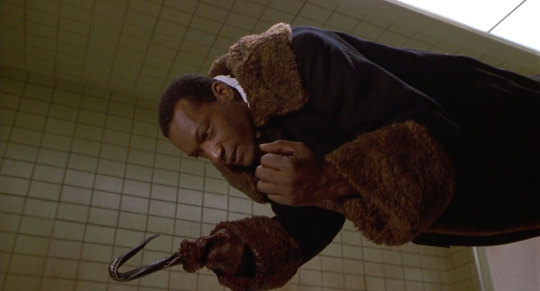
A graduate student (Virginia Madsen) studying urban myths unwittingly summons the Candyman (Tony Todd), the hook-handed ghost of a Black painter who was lynched decades ago.
I expected fun slasher nonsense and instead got a gorgeous, unsettling, modern gothic masterpiece that only occasionally dips its toes into schlock. Candyman is ethereal in all the right ways despite being suffused with despairing urban gloom. I was not surprised to find the script was adapted from a Clive Barker story—like Barker’s The Hellbound Heart (adapted into the Hellraiser films), Candyman is chilling yet eerily beautiful. The moment I finished watching it, I knew this was one I would be itching to revisit. There’s just so much going on regarding race, class, and memory in America. Also, Tony Todd’s voice is a damn treasure.
Merrily We Go to Hell (dir. Dorothy Arzner, 1932)
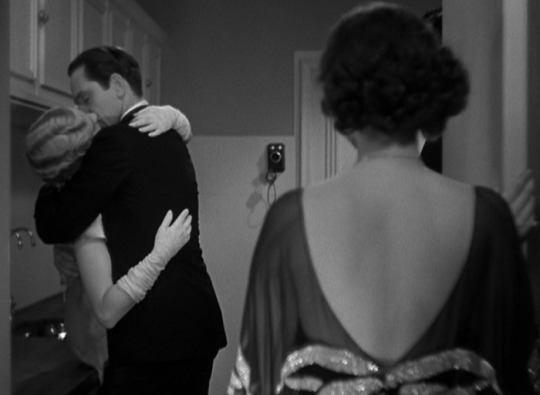
An alcoholic playwright (Frederic March) and his long-suffering wife (Sylvia Sidney) decide to have an open marriage. It doesn't work out well for either of them.
Merrily We Go to Hell is a sneaky piece of work. Reading the synopsis, one expects the usual salacious pre-code melodrama. The first scenes even resemble your usual romantic comedy, with our central couple having a meet-cute. The actual movie is much more complicated. It's about a married couple thinking love is enough to make their union work despite the husband's alcoholism. However, this idea proves erroneous and attempts to numb the pain through hedonism and extramarital vengeance just pour gasoline on the fire. The emotional honesty here is astonishing and even the "happy ending" isn't so uncomplicated when you think about it. So far, this is my favorite film of director Dorothy Arzner.
Up the Down Staircase (dir. Robert Mulligan, 1967)
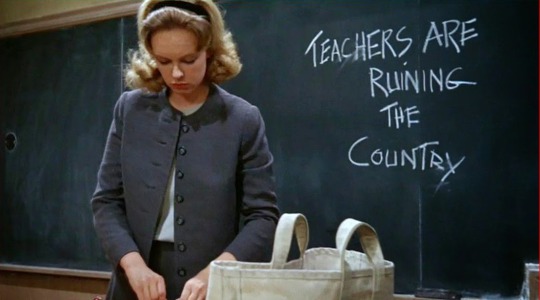
An idealistic young teacher (Sandy Dennis) gets her first position at an inner-city high school. However, she finds her enthusiasm worn down by the school system's bureaucracy and the many psychological troubles of her students and fellow faculty.
Ever since I watched Four Seasons a few years ago, I’ve been intrigued by Sandy Dennis. No matter the role, I find her eccentric yet vulnerable screen presence compelling. Up the Down Staircase was Dennis’ first starring vehicle and an unsentimental look at the teaching profession. Having worked as a teacher and in similar jobs in the past, I related strongly to the main character’s compassion fatigue and her frustrated desire to help make her community a better place. While not a cheery film, it is ultimately an optimistic one, even if that optimism is cautious. And of course, Dennis is damn great as always, whetting my appetite for more of her work.
They Shoot Horses, Don’t They? (dir. Sydney Pollack, 1969)
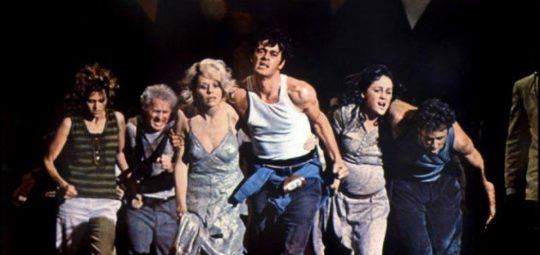
In the thick of the Great Depression, a group of desperate contestants sign up for a grueling dance marathon with a hefty cash prize. Greed, sexual exploitation, health problems, and crushing despair eventually complicate the exhibition.
This movie is so bleak you’ll be just as exhausted as the characters by the tragic finish. I know that doesn’t sound like much of a recommendation, but this is powerful stuff. It does what a great tragedy should do: make you emphasize with the characters and go out into the world more empathetic toward the people around you and more critical of a society in which such awful conditions could be permitted. And like Targets, it’s depressing that this movie’s themes remain relevant to American culture.
Flash Gordon (dir. Frederick Stephani and Ray Taylor, 1936)
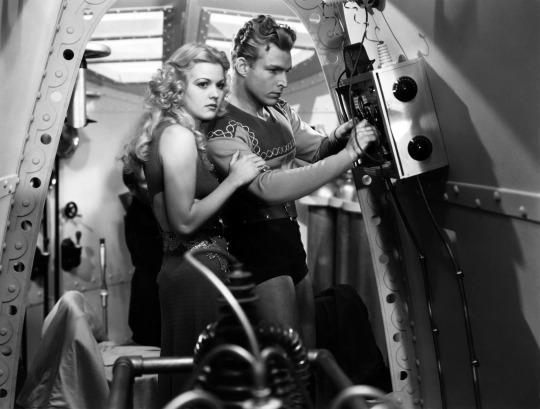
A himbo polo player (Buster Crabbe), a middle-aged scientist in hot pants (Frank Shannon), and an ingenue in a blonde wig (Jean Rogers) must save the Earth from a galactic emperor.
Yes, I’m counting a film serial as a single unit on this list. In this corny, breathless saga can be found the seeds of so many modern blockbuster spectacles. The old school space opera aesthetic is always a joy and I love seeing what George Lucas borrowed from the comic book plot and fantastic images for his Star Wars films. Also, the serial is surprisingly horny for a product released after the death knell of the pre-code era, so that’s fascinating too. I watched the episodes, one a night, usually before a feature film, to recreate at least in part the conditions in which old serials were viewed. I highly recommend that approach if you're interested in watching these kind of films-- NEVER binge them.
Silkwood (dir. Mike Nichols, 1983)
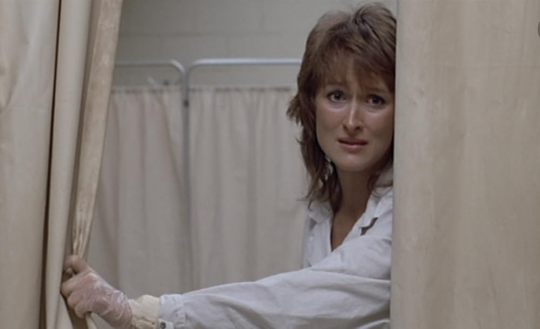
Karen Silkwood (Meryl Streep), a union activist and metallurgy worker at a plutonium processing plant, discovers both she and many of her co-workers have been contaminated with high levels of radiation due to blatant safety violations. Rather than remedy the problem, her employers are determined to keep her quiet, but Karen refuses to back down.
Meryl Streep's performance in Silkwood finally showed me what all the hype around her is about. What an astonishing, natural performance-- I forgot I was watching an actor every moment. As for the overall film, it's one of the stronger docudramas out there (as this film was based on a true story). It isn't just a preachy message piece and it allows Silkwood to be both a heroic figure and a flesh and blood human being with flaws like anyone. The domestic drama involving her lover (Kurt Russell) and lesbian roommate (Cher, who also gives an incredible performance) is almost as compelling as the main story. Though released in the early '80s, it feels like a late manifestation of the paranoia thriller genre of the decade before.
Love with the Proper Stranger (dir. Robert Mulligan, 1963)
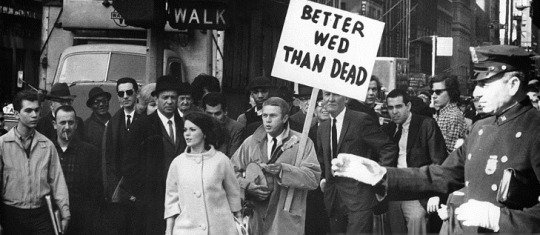
When a one-night stand with a jazz musician (Steve McQueen) leaves her pregnant and at risk of upsetting her very Catholic family, an innocent sales clerk (Natalie Wood) tracks down her lover and demands he help her get an abortion.
Love with the Proper Stranger is such a unique piece of work that I can forgive the elements that dissatisfy me (like the ending). Wood and McQueen's romance starts out acidic and slowly becomes tender over the course of their bizarre misadventure, and the film itself shifts through several moods. Sometimes it feels like an urban drama, other times a romantic comedy. But it somehow holds together, perhaps because of the chemistry between the lead actors.
What were your favorite film discoveries in 2024?
#the window#my neighbors the yamadas#a new leaf#letter from an unknown woman#thieves like us#targets#freud the secret passion#candyman#sudden fear#cactus flower#flash gordon#the black room#up the down staircase#they shoot horses don't they#cash on demand#losing ground#paris is burning#merrily we go to hell#thoughts#silkwood#love with the proper stranger
43 notes
·
View notes
Text
August 7, 2023
By Maureen Lee Lenker
(Entertainment Weekly) — We'll always have Paris, but for a time, it seemed as if we might not always have Turner Classic Movies.
Since 1994, TCM has aired films, uncut and commercial-free, 24 hours a day, all enhanced by monthly themed and curated programming, hosted introductions and conclusions (known as outros), conversations with filmmakers and talent, and original content. In its nearly 30 years of existence, the network has expanded beyond its already estimable remit as a cable network-meets-film-school, with fan events including a film festival and cruise.
The brand also plays a key role in global film preservation efforts. Restorations of bigger studio titles are typically done by the studios themselves, but TCM is more often than not the showcase for such work — both on air and at the annual film festival. TCM won a Peabody Award in 2008 for its "commitment to film preservation and restoration."
In 2023 alone, TCM partnered with the Film Foundation and the studio to restore 10 classics for the Warner Bros. 100th anniversary, including 1932's One Way Passage, 1941's The Strawberry Blonde, 1959's Rio Bravo, and 1955's East of Eden, all of which screened at the film festival and aired on the network. Last year, TCM celebrated its expanded partnership with the Film Foundation with the premiere of a 4K restoration of the Elizabeth Taylor/James Dean/Rock Hudson epic Giant at the 2022 festival. (Going even further back, in 2007, TCM tracked down the rights to six "lost" RKO films, including William Powell comedy Double Harness and Ginger Rogers rom-com Rafter Romance, not seen in over 50 years).
But on June 20, all of that seemed to be in peril as news broke that the entire executive leadership team of TCM (most of whom boasted 20-plus years of experience with the network) were being laid off alongside other members of the staff. The latest round of layoffs, which network staff tell EW they were blindsided by, are part of Warner Bros. Discovery's continuing attempts to cut costs across the studio.
Some backtracking from the executives at WBD is alright (especially in terms of staff rehires and bringing back the TCMFF Director), but they cut away at something that wasn't broken to begin with!
#TCM#saveTCM#Warner Bros.#Warner Bros. Discovery#WBD#David Zaslav#Ben Mankiewicz#Eddie Muller#Jacqueline Stewart#Alicia Malone#Dave Karger#Steven Spielberg#Paul Thomas Anderson#Martin Scorsese#Wes Anderson#Greta Gerwig#The Film Foundation#Entertainment Weekly#news
110 notes
·
View notes
Text
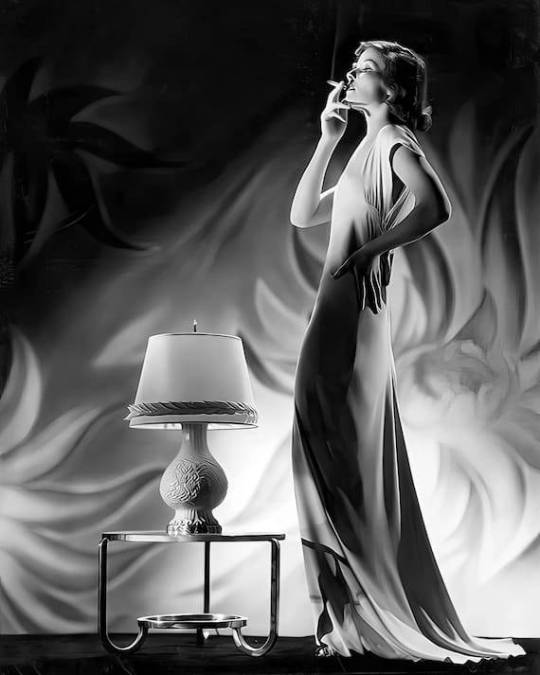
KATHERINE HEPBURN
Katharine Houghton Hepburn (May 12, 1907 – June 29, 2003) was an American actress whose career as a Hollywood leading lady spanned six decades. She was known for her headstrong independence, spirited personality, and outspokenness, cultivating a screen persona that matched this public image, and regularly playing strong-willed, sophisticated women. She worked in a varied range of genres, from screwball comedy to literary drama, and earned her various accolades, including four Academy Awards for Best Actress—a record for any performer. In 1999, Hepburn was named the greatest female star of classic Hollywood cinema by the American Film Institute.
Raised in Connecticut by wealthy, progressive parents, Hepburn began to act while at Bryn Mawr College. Favorable reviews of her work on Broadway brought her to the attention of Hollywood. Her early years in film brought her international fame, including an Academy Award for Best Actress for her third film, Morning Glory (1933), but this was followed by a series of commercial failures culminating in the critically lauded box office failure Bringing Up Baby (1938). Hepburn masterminded her comeback, buying out her contract with RKO Radio Pictures and acquiring the film rights to The Philadelphia Story, which she sold on the condition that she be the star. That comedy film was a box office success and landed her a third Academy Award nomination. In the 1940s, she was contracted to Metro-Goldwyn-Mayer, where her career focused on an alliance with Spencer Tracy. The screen partnership spanned 26 years and produced nine films.
Hepburn challenged herself in the latter half of her life as she tackled Shakespearean stage productions and a range of literary roles. She found a niche playing mature, independent, and sometimes unmarried women such as in The African Queen (1951), a persona the public embraced. Hepburn received three more Academy Awards for her performances in Guess Who's Coming to Dinner (1967), The Lion in Winter (1968), and On Golden Pond (1981). In the 1970s, she began appearing in television films, which later became her focus. She made her final screen appearance at the age of 87. After a period of inactivity and ill health, Hepburn died in 2003 at the age of 96
44 notes
·
View notes
Text
Flirting in the Park (1933)
#flirting in the park 1933#grady sutton#eddie j nugent#eddie j. nugent#carol tevis#june brewster#donald haines#this film was the funniest among 'blonde and redheads' series#rko short film#rko short comedy#rko comedy
0 notes
Text

Robert Mitchum and Jane Russell in His Kind of Woman (John Farrow, 1951)
Cast: Robert Mitchum, Jane Russell, Vincent Price, Tim Holt, Charles McGraw, Marjorie Reynolds, Raymond Burr, Leslye Banning, Jim Backus, Philip Van Zandt, John Mylong, Carleton G. Young. Screenplay: Frank Fenton, Jack Leonard. Cinematography: Harry J. Wild. Production design: J. McMillan Johnson. Film editing: Frederic Knudtson, Eda Warren. Music: Leigh Harline.
His Kind of Woman starts out as a tough-talking film noir and ends up as a knockabout action comedy. The credit or blame for that belongs to Howard Hughes, the RKO studio head and executive producer, who waited until John Farrow had finished the movie and then had Richard Fleischer re-shoot it, even recasting the villain, originally played by Lee Van Cleef, with Raymond Burr. The New York Times reviewer hated it, partly because of the shift in tone, but most people like it. Robert Mitchum and Jane Russell were never going to outdo Humphrey Bogart and Lauren Bacall in dialogue like "They tell me you killed Ferraro. How did it feel?" "He didn't say." But they're good enough at it that they give the movie a core that the flurry of oddball characters and the loony setup for the plot needs. Vincent Price is wonderful as an Errol Flynnish movie star who spouts tags from Shakespeare as he joins Mitchum in taking on the bad guys. Hughes made sure that Russell's gowns, designed by Howard Greer, were as revealing as possible, and Mitchum spends a lot of the film without his shirt, looking a little thick in the waist to contemporary viewers used to gym-toned physiques. The end product probably wasn't worth the money Hughes lost on it, but it's still fun.
9 notes
·
View notes
Text
On February 15, 1951, Walk Softly, Stranger debuted in Italy.

#walk softly stranger 1950#walk softly stranger#robert stevenson#alida valli#rko films#rko studios#rko#rko pictures#drama film#comedy drama#crime drama#film noir#noir#50s noir#crime drama film#movie art#art#drawing#movie history#pop art#modern art#pop surrealism#cult movies#portrait#cult film#warm bodies
0 notes
Text

0 notes
Text

Barbara and Bill made a movie together? I just finished reading the chapter about Barbara Hale in The RKO Girls and I saw this still picture (in black and white) from their movie Slim Carter
10 notes
·
View notes
Text
Rosalind Russell - The Miracle Woman
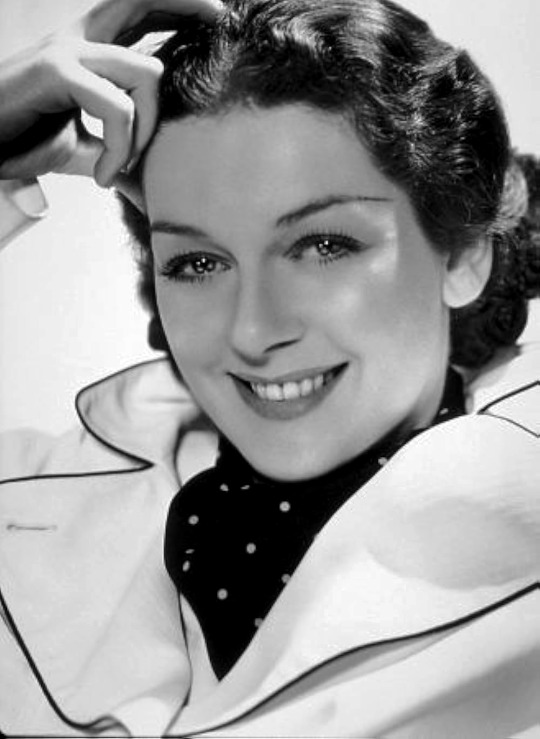

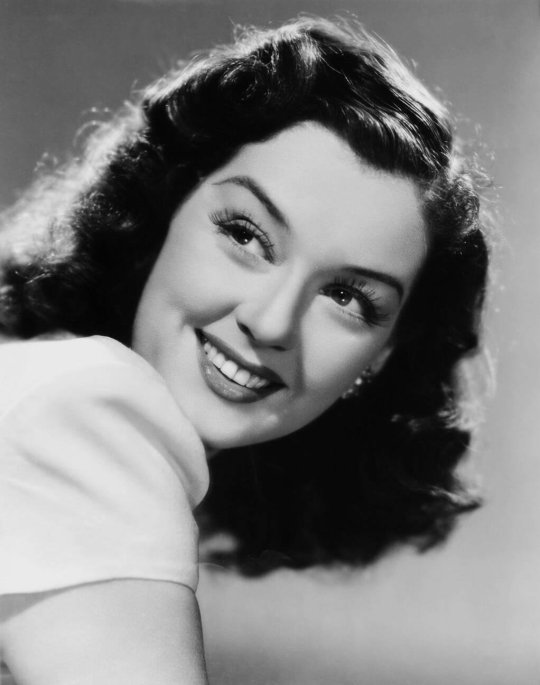


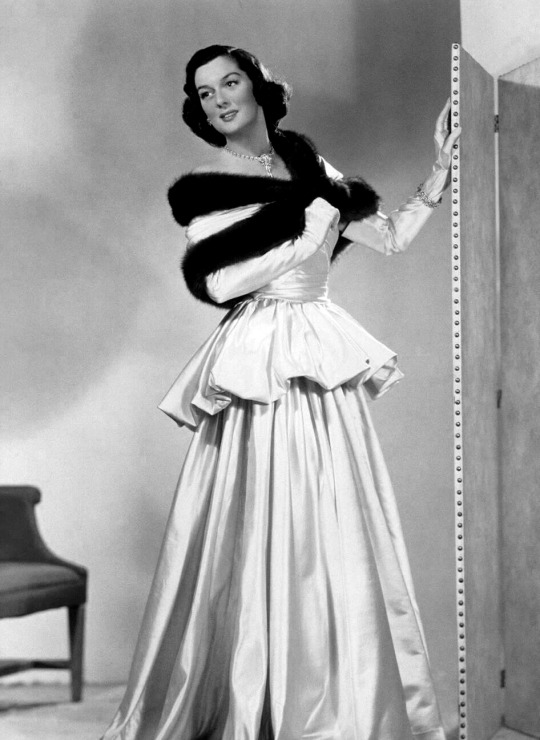

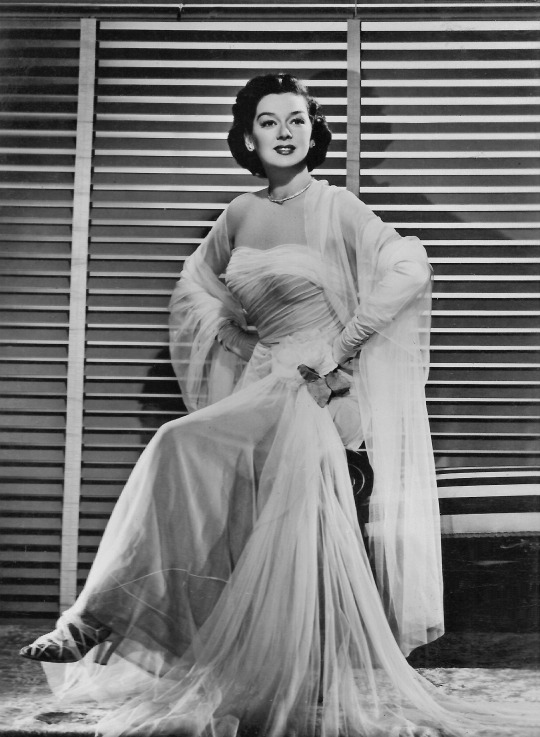




Catherine Rosalind Russell (born in Waterbury, Connecticut on June 4, 1907) was an American actress known for playing sassy, wisecracking women in 1930s and '40s comedies. Despite going through postpartum depression, the deaths of her siblings, breast cancer, and rheumatoid arthritis, she thrived as a charismatic actress on film and the stage, earning the nickname "The Miracle Woman.”
Raised in a strict Irish-American, Catholic family. She attended Rosemont College and Marymount College, before graduating from the American Academy of Dramatic Arts in New York City, unbeknownst to her parents who believed she was studying to be a speech teacher.
Against parental objections, she began her career as a fashion model and took acting jobs in upstate New York, Connecticut, and Boston before eventually appearing in Broadway.
In 1933, Russell went to Los Angeles, where she was hired as a contract player for Universal Studios but did not appear in a movie. Unhappy at Universal, she moved to Metro-Goldwyn-Mayer, where she broke through in the classic screwball comedy His Girl Friday (1940), directed by Howard Hawks.
She took a break after giving birth from her career, but made a comeback with RKO Pictures and then with Columbia Pictures. She continued to appear in critically acclaimed movies and Broadway shows through the mid-1960s, including the title role of the long-running stage comedy Auntie Mame (based on a Patrick Dennis novel) as well as the 1958 film version.
After years of battling breast cancer and even getting a double mastectomy, she died at her home in Beverly Hills, California at 69 years of age. Months after her death, she was honored by her acting colleagues with the “Interlude With Rosalind Russell” at the Shubert Theater in Broadway.
Legacy:
Nominated four times for the Academy Award for Best Actress for her performances in My Sister Eileen (1942), Sister Kenny (1946), Mourning Becomes Electra (1947), and Auntie Mame (1958)
Won all five of her Golden Globe Award for Best Actress nominations: Sister Kenny (1946), Mourning Becomes Electra (1947), Auntie Mame (1958), A Majority of One (1961), and Gypsy (1962)
Won the 1953 Tony Award for Best Actress in a Musical for Wonderful Town and was nominated for the 1957 for Best Actress in a Play for Auntie Mame
Nominated for the 1959 BAFTA Award for Best Foreign Actress
Won the Golden Apple Award in 1942 for Most Cooperative Actress
Awarded the Look Magazine Award for Film Achievement Award in 1947
Covered Time magazine in 1953
Was the namesake of the Rosalind Russell State Theater in her hometown in 1955
Wrote the story for the film The Unguarded Moment (1956) and adapted the novel, The Unexpected Mrs. Pollifax, into the screenplay for Mrs. Pollifax-Spy in 1971, under the pen name C.A. McKnight
Won the Golden Laurel for Top Female Comedy Performance for Auntie Mame (1958) and was nominated five more times
Presented with a medallion by the National Conference of Christians and Jews in 1962
Honored for her distinguished service by the UCLA in 1964
Named the Woman of the Year by Hasty Pudding Theatricals, a student society at Harvard University, in 1964
Is the recipient of the Floyd B. Odlum Award by the Arthritis Foundation in 1971
Appointed by Congress to serve on the National Commission on Arthritis and Related Musculoskeletal Diseases during the 1970s
Received the Golden Plate Award of the American Academy of Achievement in 1972
Appeared in John Springer's "Legendary Ladies" series at The Town Hall in 1973
Awarded the Jean Hersholt Humanitarian Award in 1973 by the Academy for her extensive charity work
Presented her with the National Artist Award in 1974 by the American National Theater and Academy
Awarded the Life Achievement Award in 1975 by the Screen Actors Guild Awards
Hosted by First Lady Betty Ford at the White House in 1976
Honored with the Rosalind Russell Week in 1977 by Los Angeles Mayor Tom Bradley
Co-authored her autobiography, Life Is a Banquet, in 1977
Is the namesake of the Rosalind Russell Medical Research Center for Arthritis at the University of California, San Francisco, created by a Congress grant in 1979
Inducted into the Connecticut Women's Hall of Fame in 2005
Ranked #28 on Premiere magazine's 100 Greatest Performances of All Time in 2006 for His Girl Friday (1940)
Honored as Turner Classic Movies Star of the Month for July 2008
Inducted in the Online Film and Television Association Film Hall of Fame in 2014
Was the subject of a 2016 exhibit at the Mattatuck Museum in her hometown
Honored by the Berlin Film Festival‘s 27-movie tribute in 2022
Has a star on the Hollywood Walk of Fame in the 1700 block of Vine Street for motion picture

#Rosalind Russell#The Miracle Woman#Roz Russell#Auntie Mame#Silent Films#Silent Era#Silent Film Stars#Golden Age of Hollywood#Film Classics#Old Hollywood#Vintage Hollywood#Hollywood#Movie Star#Hollywood Walk of Fame#Walk of Fame#Movie Legends#hollywood legend#movie stars#1900s#28 Hollywood Legends Born in the 1900s
13 notes
·
View notes
Text
Movie Musical Divas Tournament: Round 1


Ethel Waters (1896-1977): On with the Show (1929) - herself | Cabin in the Sky (1943) - Petunia Jackson
"ethel waters rose to fame on the vaudeville circuit and became a celebrated entertainer with a huge influence on popular music. she introduced and popularized "stormy weather" and other songs. she starred in many broadway musicals including cabin in the sky, which was adapted into a film by vincente minnelli with ethel reprising her role." - anonymous
Irene Dunne (1898-1990): Leathernecking (1930) - Delphine Witherspoon | Sweet Adeline (1934) - Adeline Schmidt | Roberta (1935) - Stephanie | Show Boat (1936) - Magnolia Hawks | High Wide and Handsome (1937) - Sally Watterson
"not only was she a screwball comedy icon and a fine dramatic actress and so so beautiful, irene dunne had an angelically gorgeous singing voice and should have been in more musicals. she wanted to become an opera singer, but when that didn't work out she went into broadway musicals and then film acting. i literally cry every time when she sings "smoke gets in your eyes" in roberta (where she's billed above fred and ginger, who rko was still figuring out what to do with). she also notably starred in the 1936 version of show boat." - anonymous
This is Round 1 of the Movie Musical Divas tournament. Additional polls in this round may be found by searching #mmround1, or by clicking the link below. Add your propaganda and support by reblogging this post.
ADDITIONAL PROPAGANDA AND MEDIA UNDER CUT: ALL POLLS HERE
Ethel Waters:



youtube
Photos and video submitted by: anonymous
Irene Dunne:



youtube
Photos and video submitted by: anonymous
9 notes
·
View notes